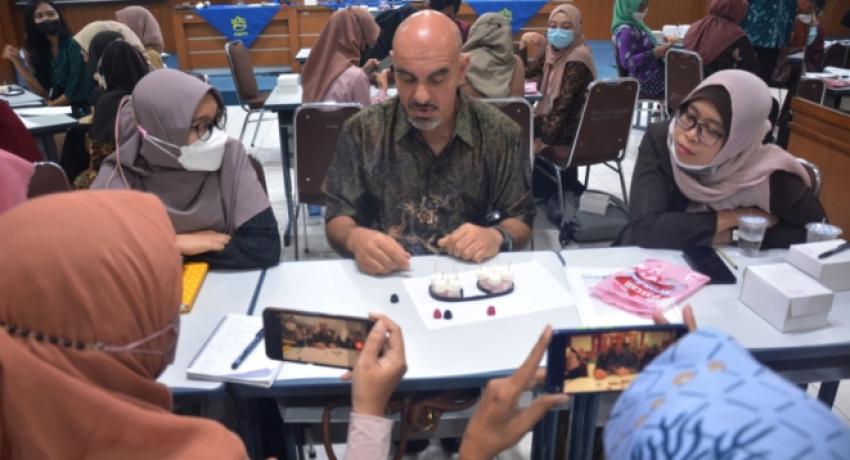“Students find it difficult to understand abstract concepts full of scientific jargon. They must go through the process by practicing it so they have a solid understanding. We need to invite students to understand science in a real-life context," said Rachid Rafei, B.Sc., from Ossmoyne Senior High School, Perth, Australia, in a General Lecture in the Department of Biology Education UNY.
Rachid Rafei explained that learning science in the Australian curriculum includes science inquiry skills and understanding science as a human endeavor. In Australia, science as a human endeavor is also an emphasis. Science as a human endeavor aims to teach students the role of science in society. Otherwise, science is just a collection of experiments, facts, and theories that scientists build. It gives them more profound insight into the impact certain scientific practices have on how we live our lives, our culture, and our values. Therefore, embedding human effort in the curriculum is essential to equip our students, future leaders, and decision-makers with the tools to understand the changing world around them. As citizens, they need to be involved in all issues that impact society at large
Rachid Rafei also suggests how to see biology in a social context. Since social, ethical, and cultural aspects also influence the dynamics of biological sciences. Rachid gave an example in terms of therapy. Rachid also talked about evolutionary activities where Genetic drift is one of the critical concepts in evolution.
On this occasion, the participants were invited to practice learning DNA and Gene using materials that were easy to find, such as marshmallows and rope, so that the teachers could practice exciting and fun learning for students.





